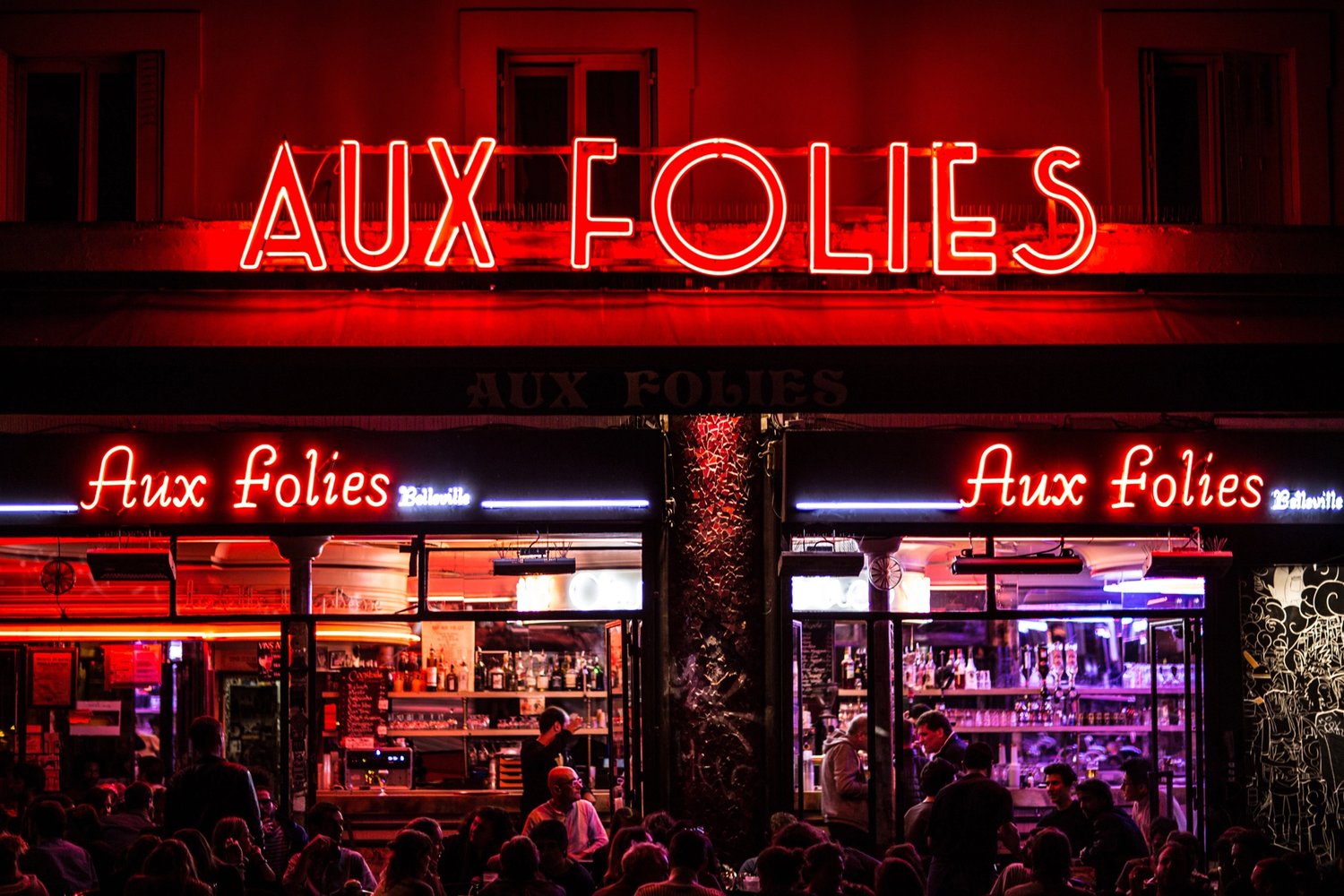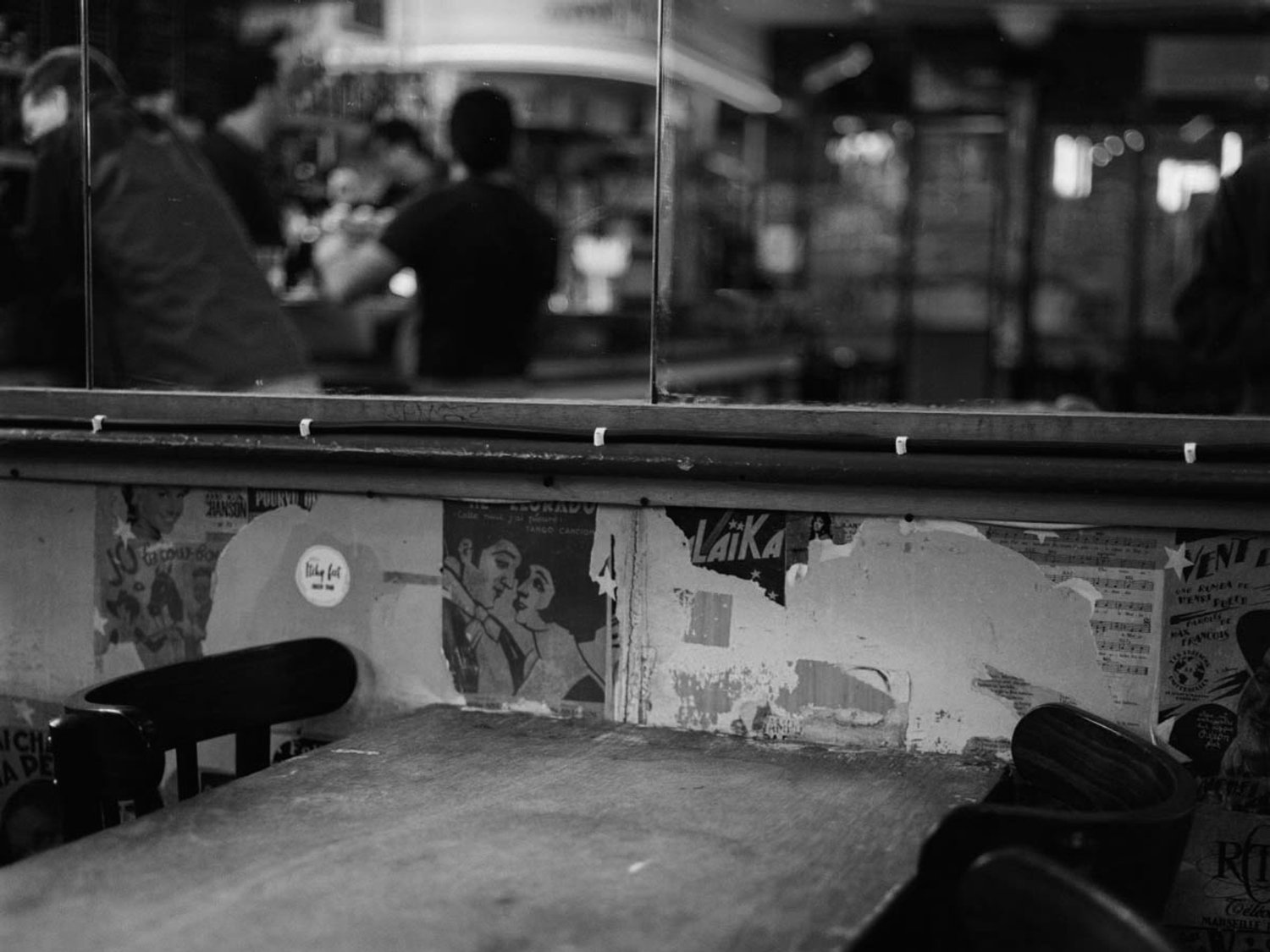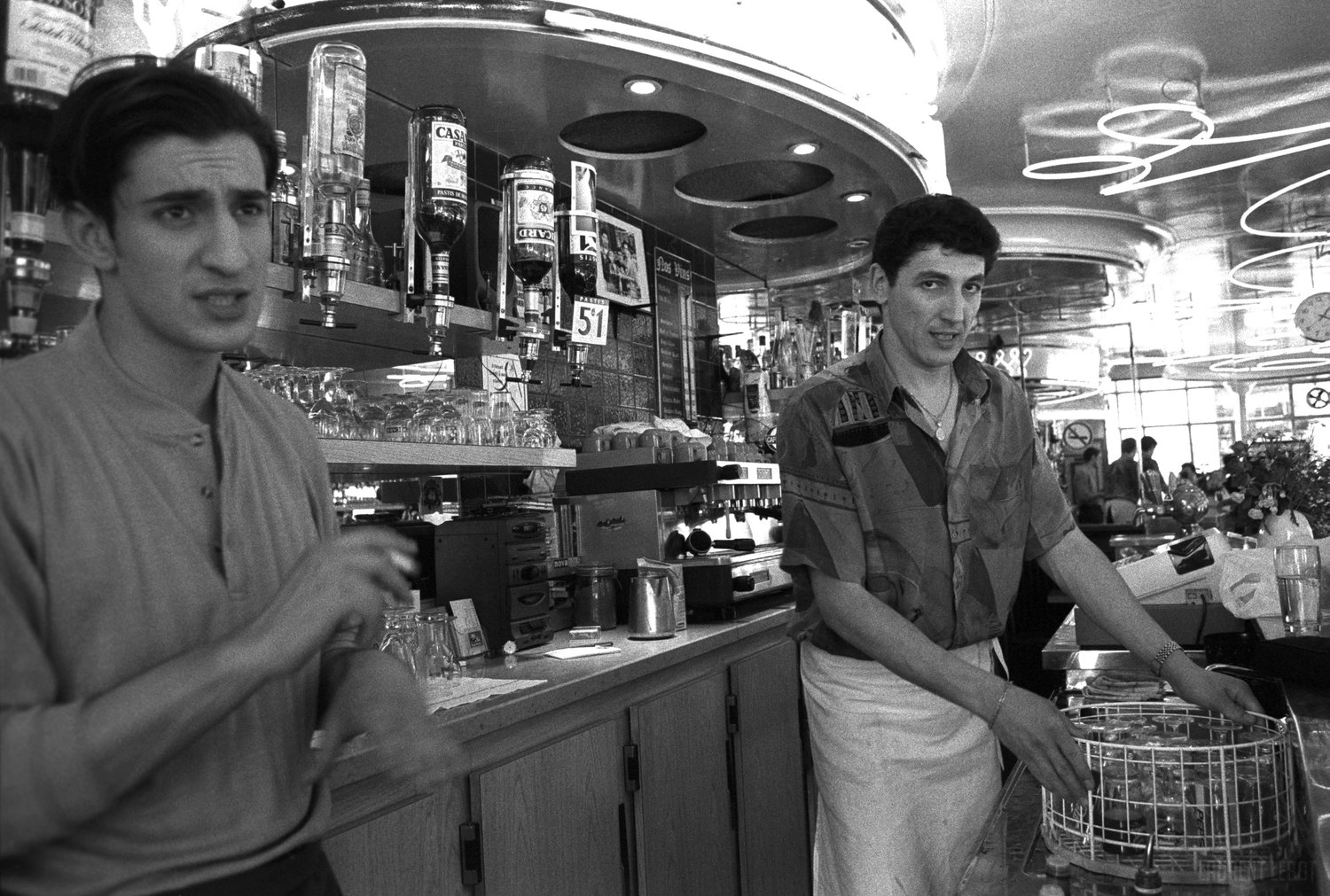Paris and the IPB
France
France

PARIS, FRANCE
by Seb Emina
There’s a bar on my street in Paris which I find fascinating. When I say ‘bar’ I mean a crush of maybe sixty moulded plastic seats plus five or six mushroom heaters. There’s a small interior containing a counter and maybe three tables but few ever enter because a man will come outside to take your order anyway (the one time I did physically stand at the bar I saw a mouse on the wine glass shelf and it was clear it felt comfortable there). The terrace, if that’s not too grand a word, is beneath a giant neon sign spelling out the bar’s name in red: Aux Folies, or ‘madness’. The street has its nicer parts and its uglier, more concrete-y parts and the view from Aux Folies is very much in the latter category.


There aren’t many reasons to favour Aux Folies. Yet no matter the subzero-ness of temperature during winter or the availability of lusher and/or prettier surroundings elsewhere during summer, its terrace is always packed. Not only that, it is packed with a combination of both locals (tradespeople, artists, shopkeepers etc) and those who have travelled across town to sit there. I myself often recommend it because for all its failings (the beer doesn’t taste good either), Aux Folies’ popularity, and the cross-section of its customer base, creates a stirring atmosphere. The truth of course is that the whole project is self-sustaining. Aux Folies’ popularity is the thing that creates that popularity, of which there must have been an original source, but nobody (I’ve asked around) can remember what it was.
It is the quintessential example of a very, but not exclusively, Parisian phenomenon which I call the IPB, or ‘inexplicably popular bar’. Other IPBs include Chez Jeanette on rue de Faubourg Saint-Denis which is objectively horrible and always rammed — and with interesting people too! — and Le Progrès on rue de Bretagne which is utterly generic yet attracts a dedicated clientele, especially for some reason during Paris Fashion Week. Some bars are popular because they’re good, and some are popular because they’re popular. It’s in no way clear that the first kind is superior to the second.
- Seb Emina is the editor in chief of bookish magazine The Happy Reader and author of The Breakfast Bible, a breakfasters’ compendium of recipes, essays and miscellany.
